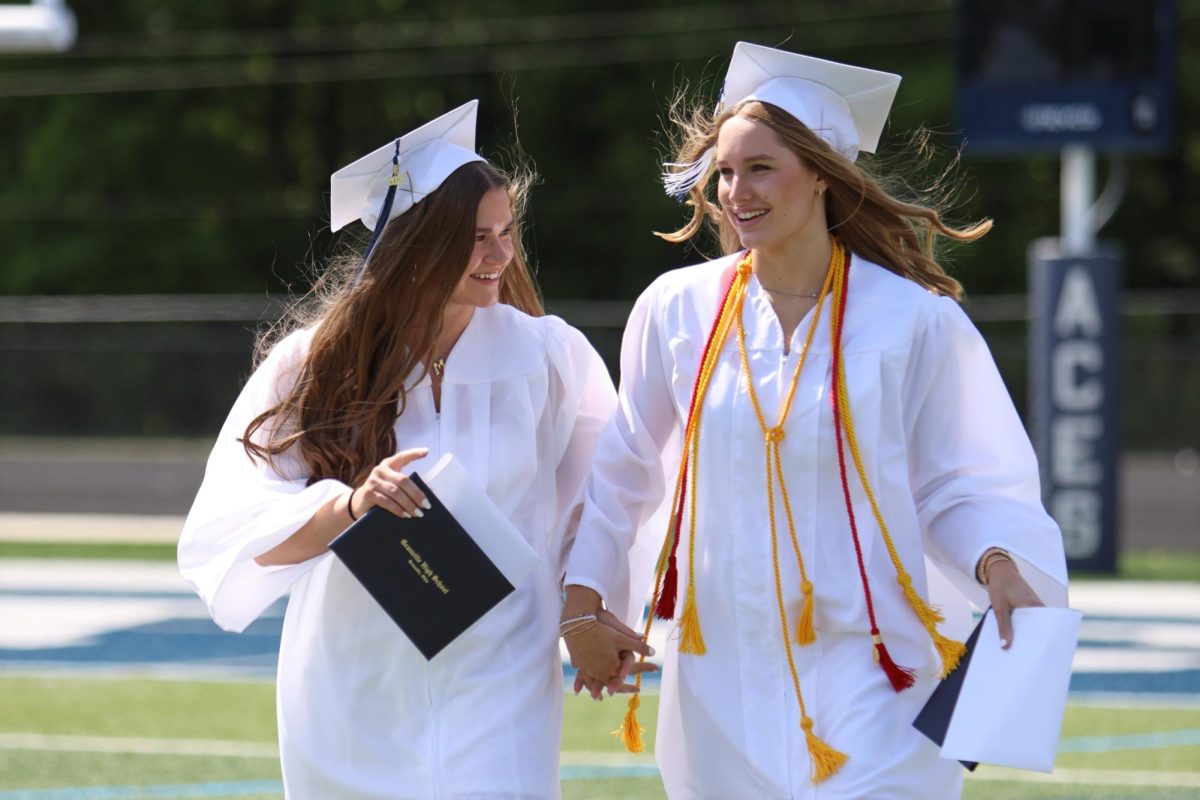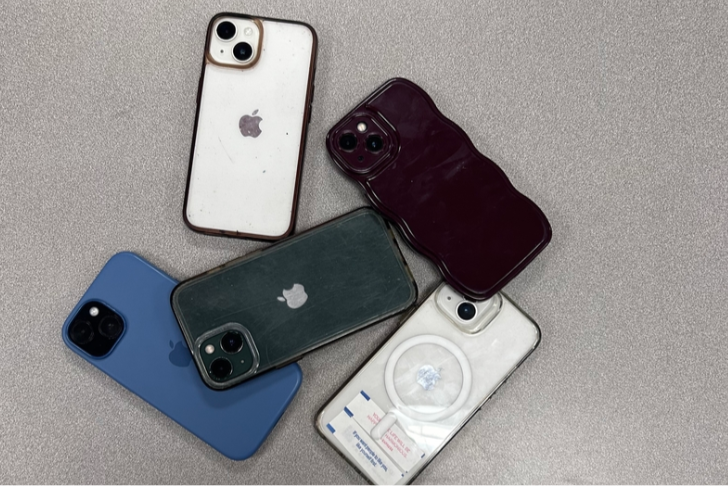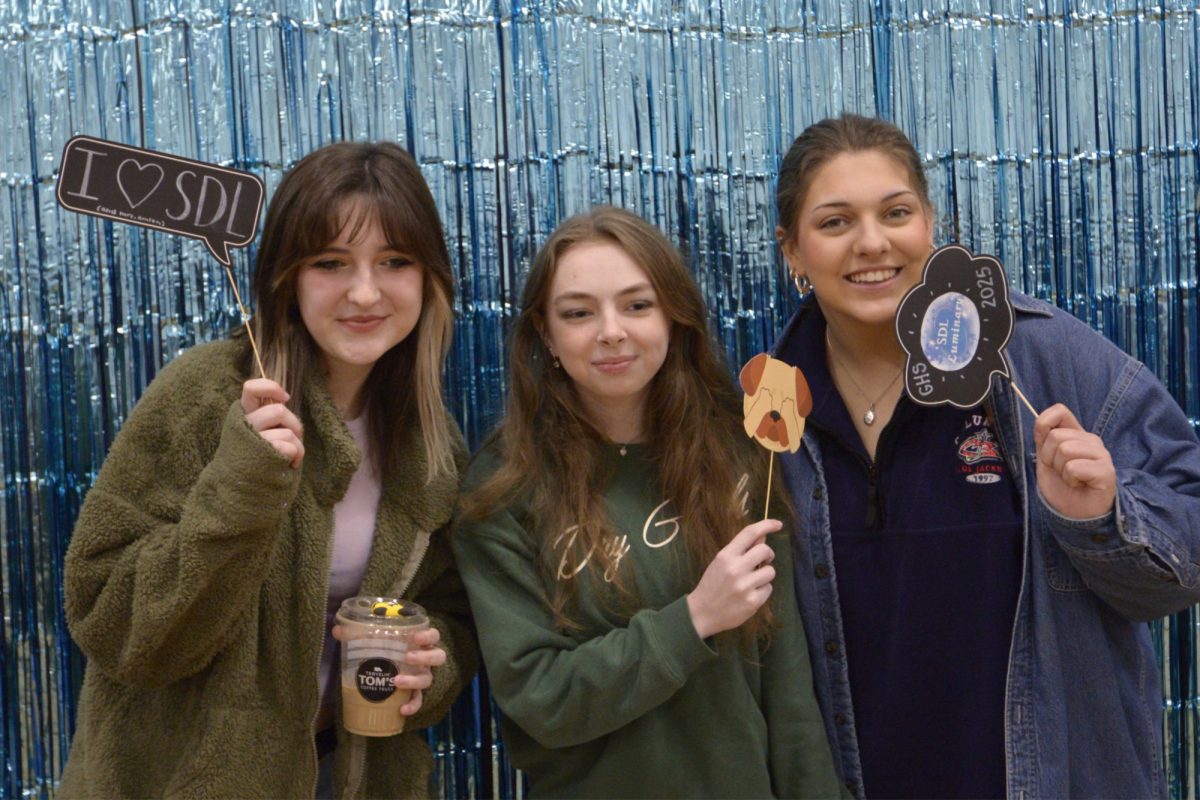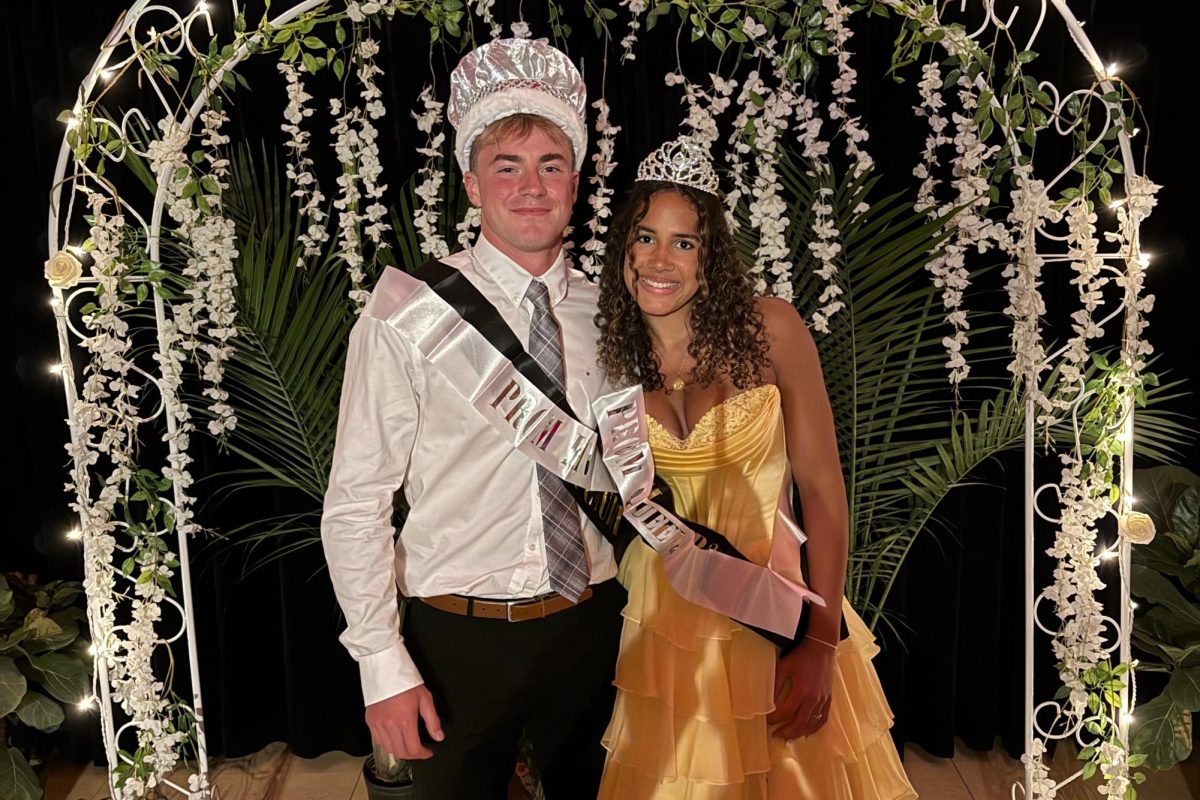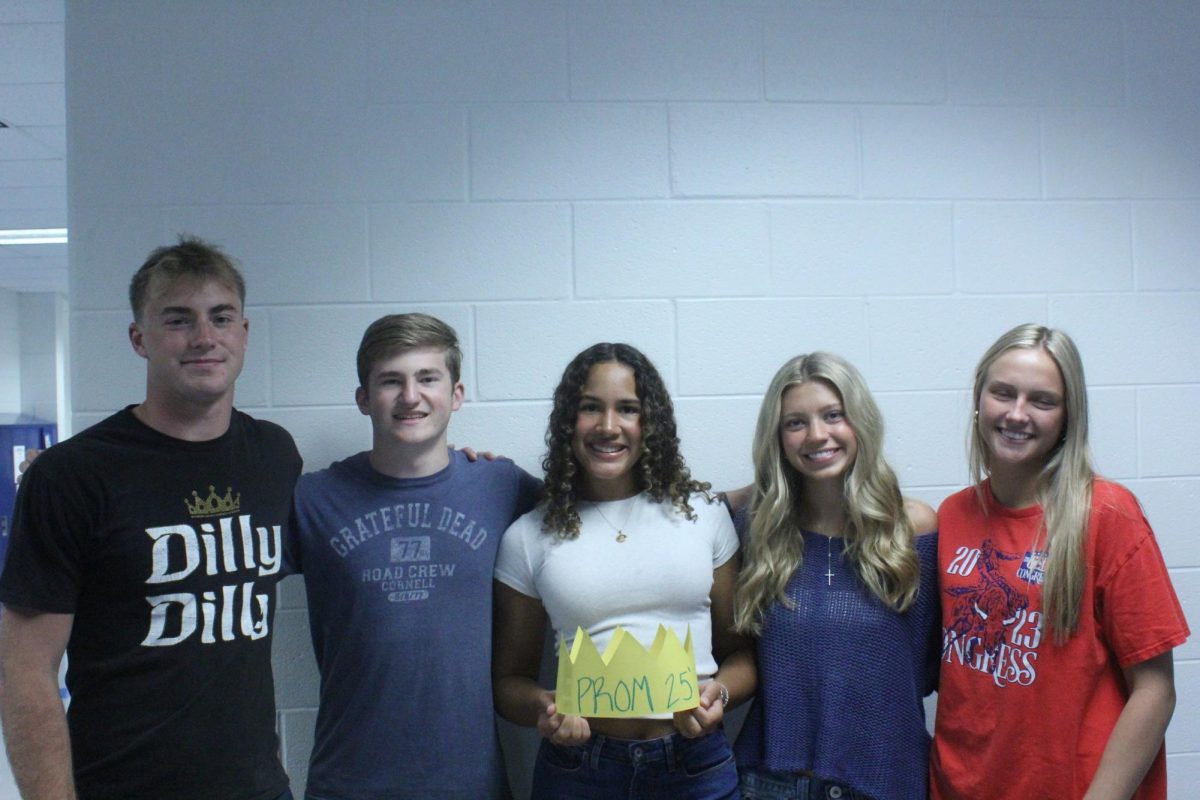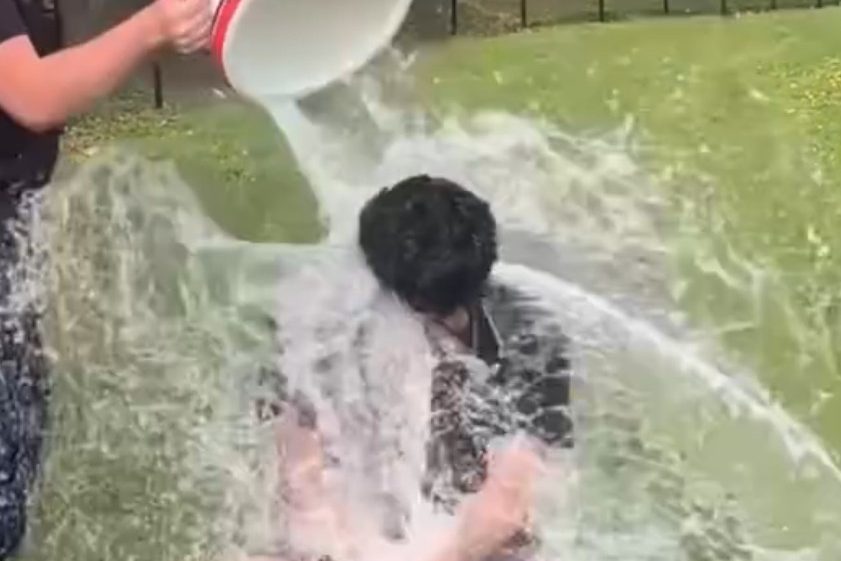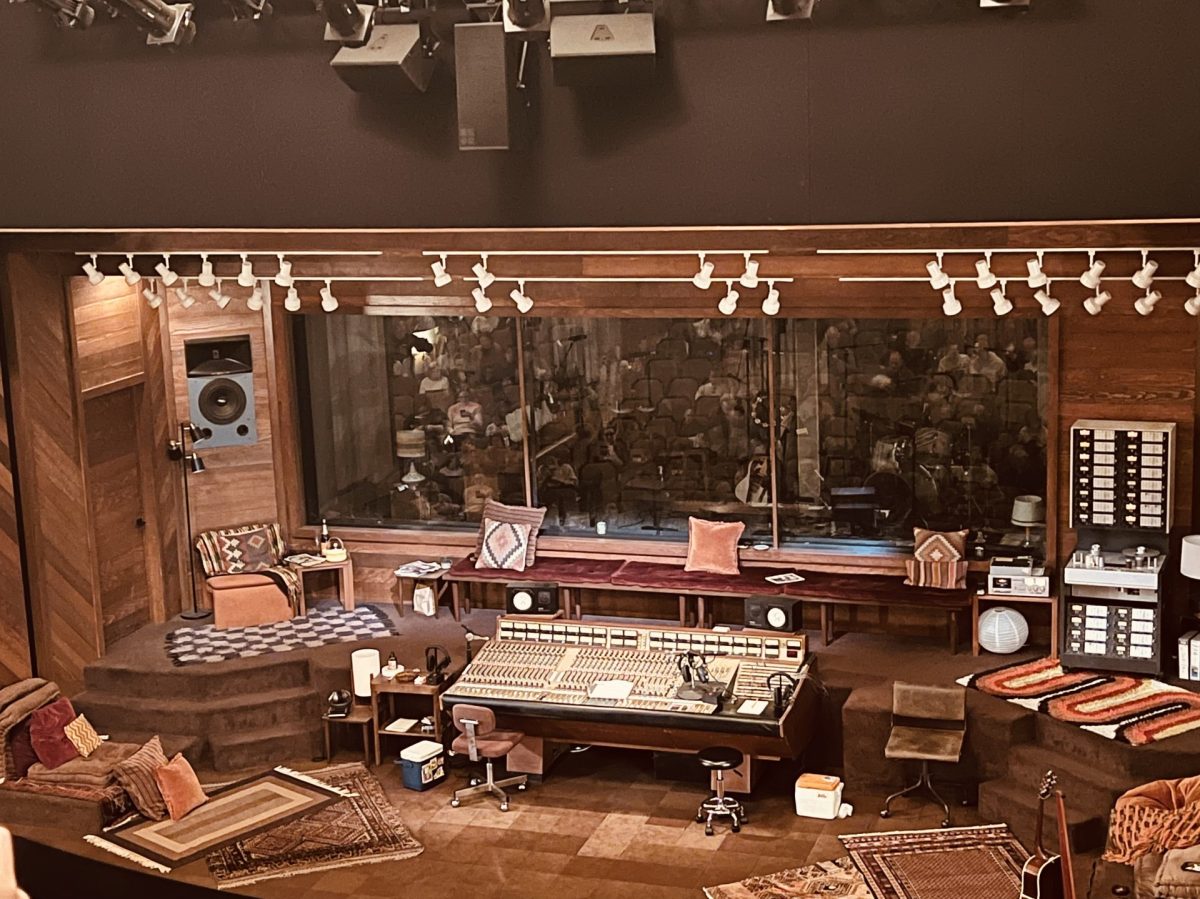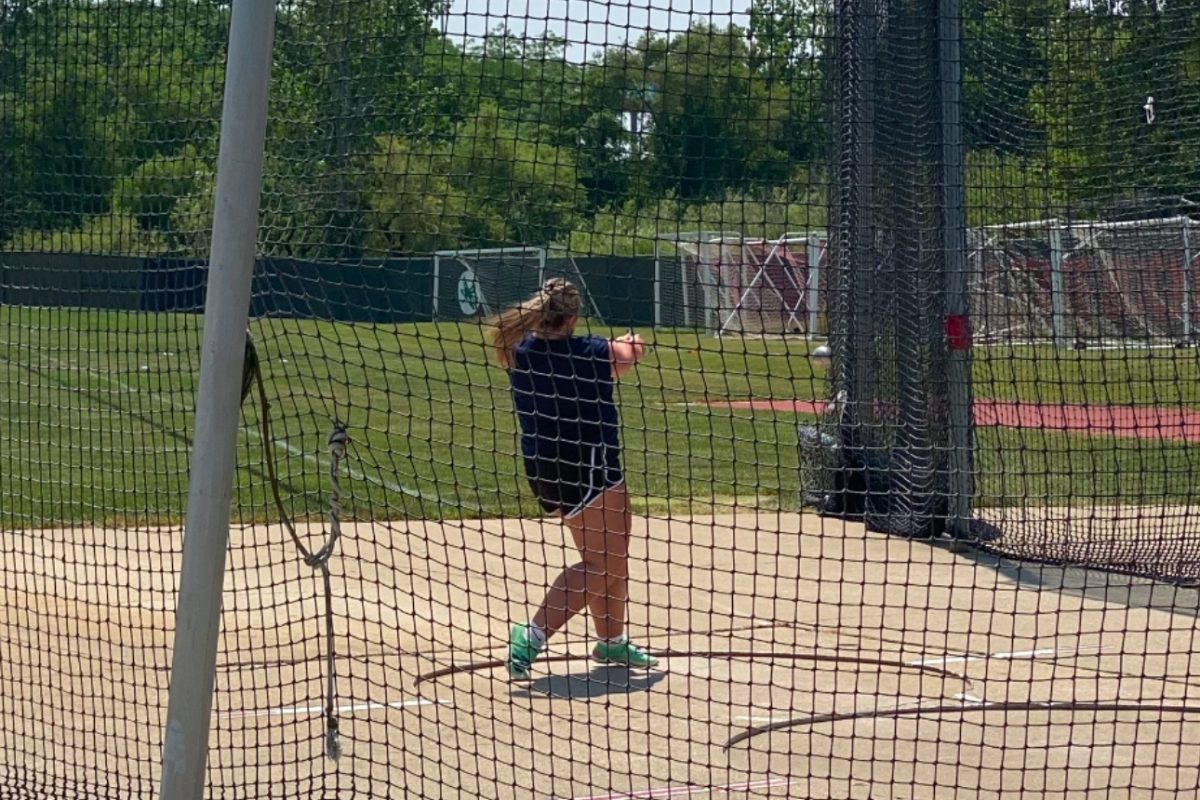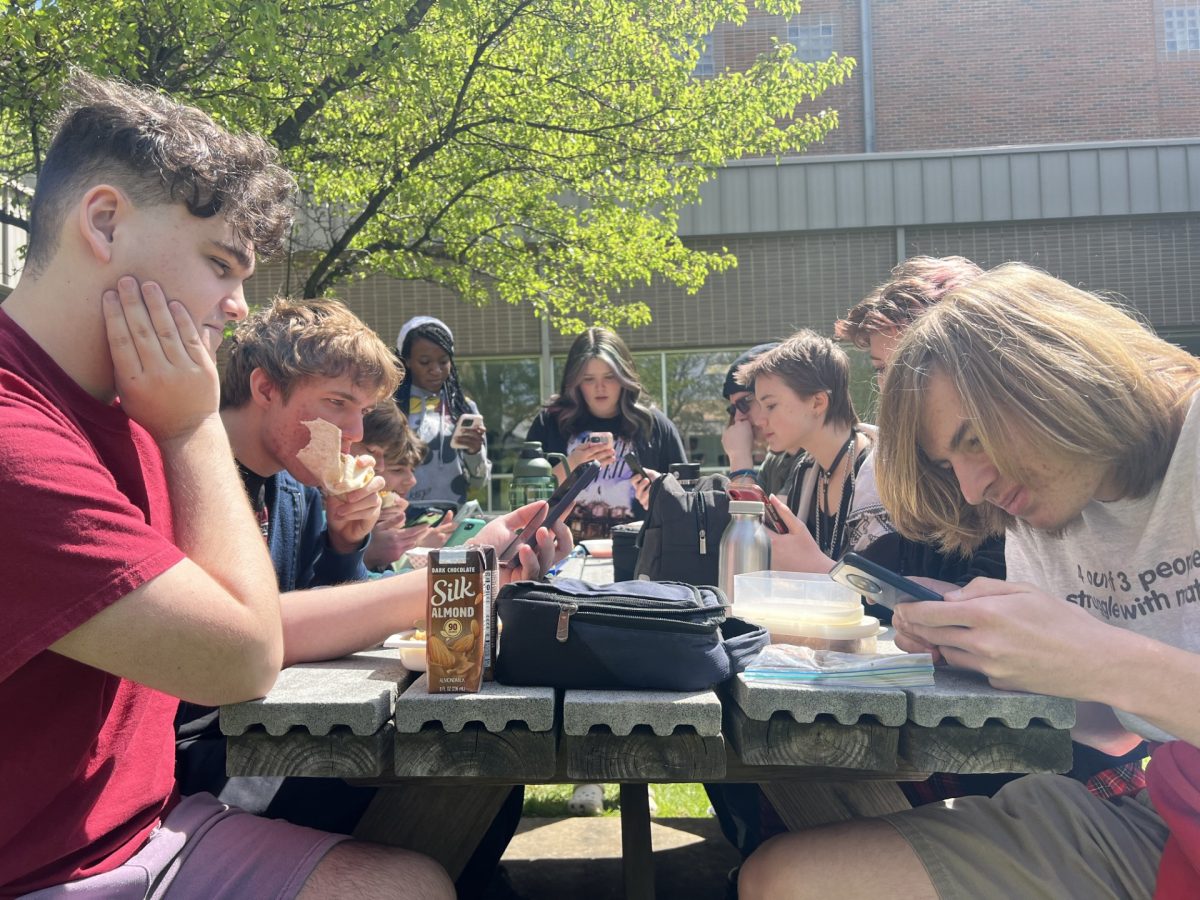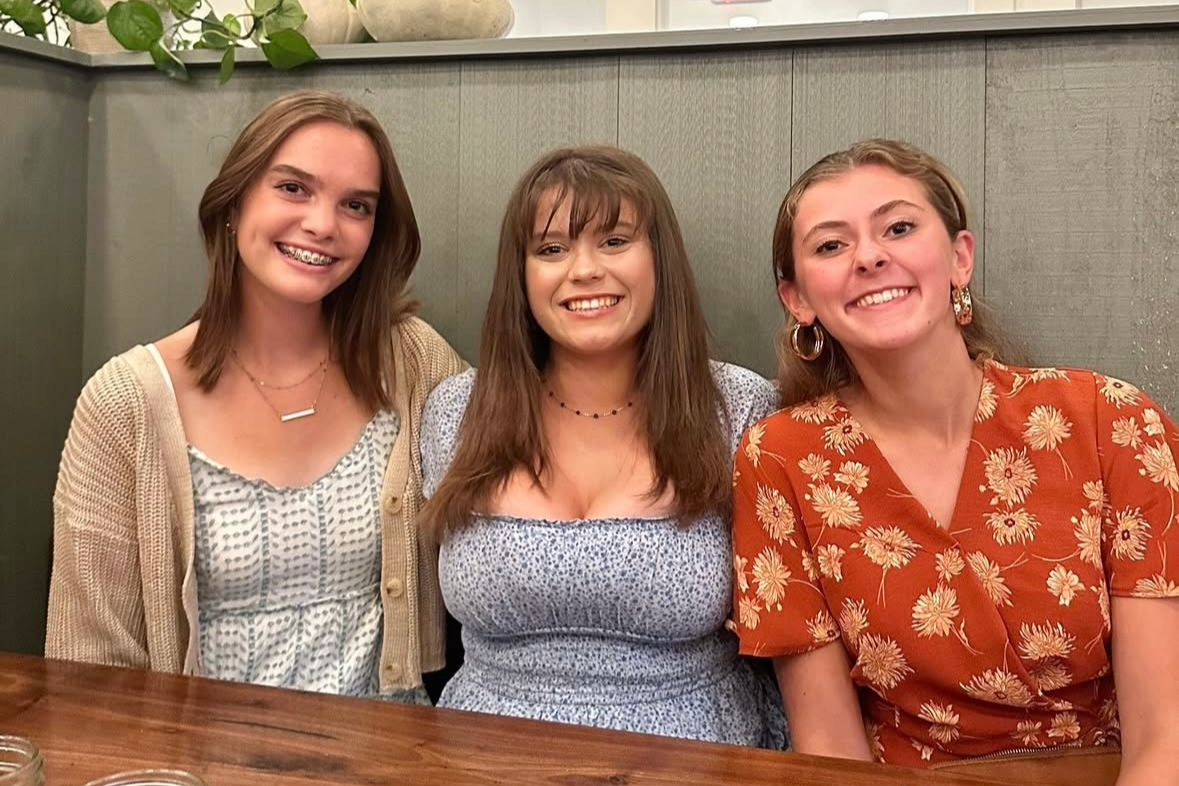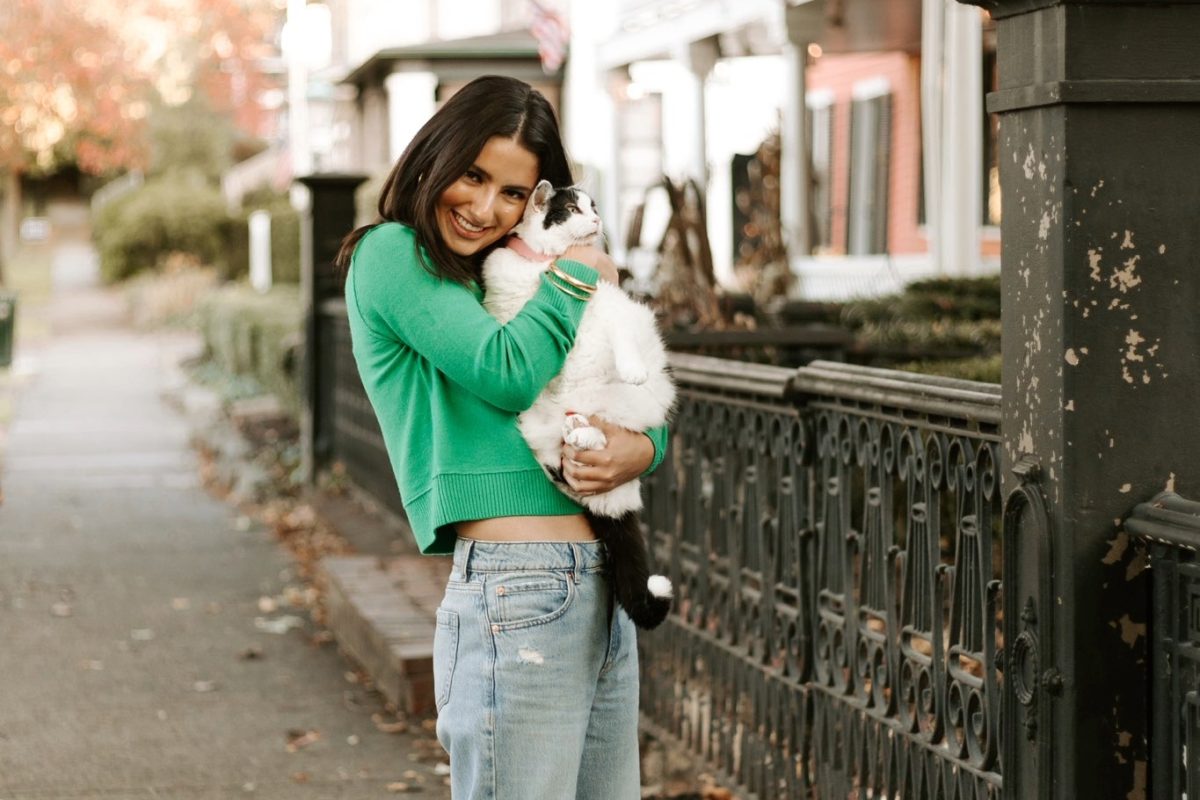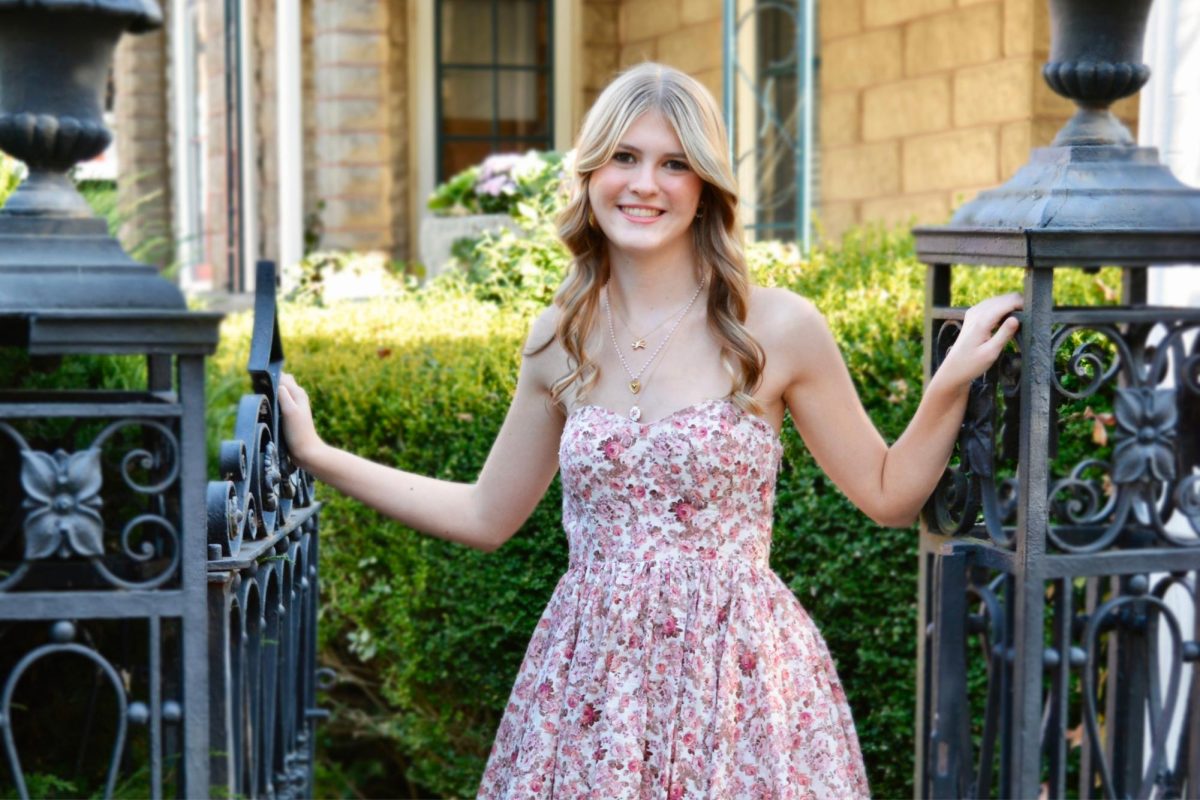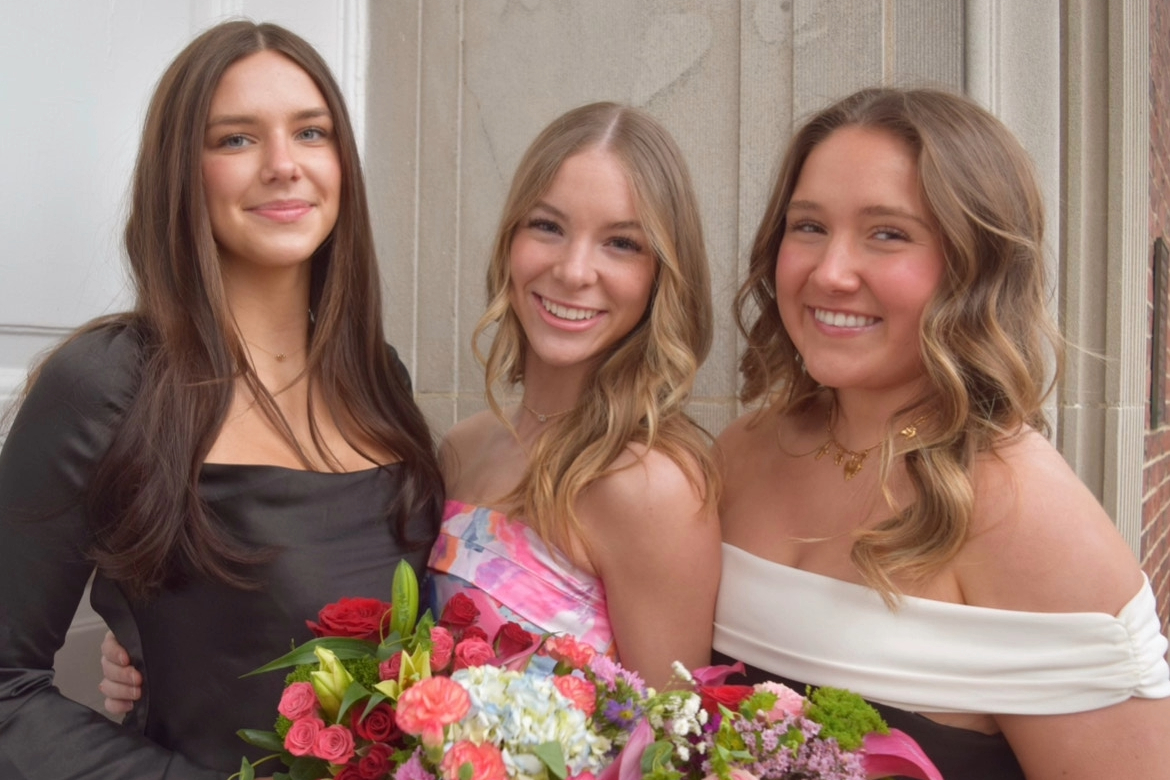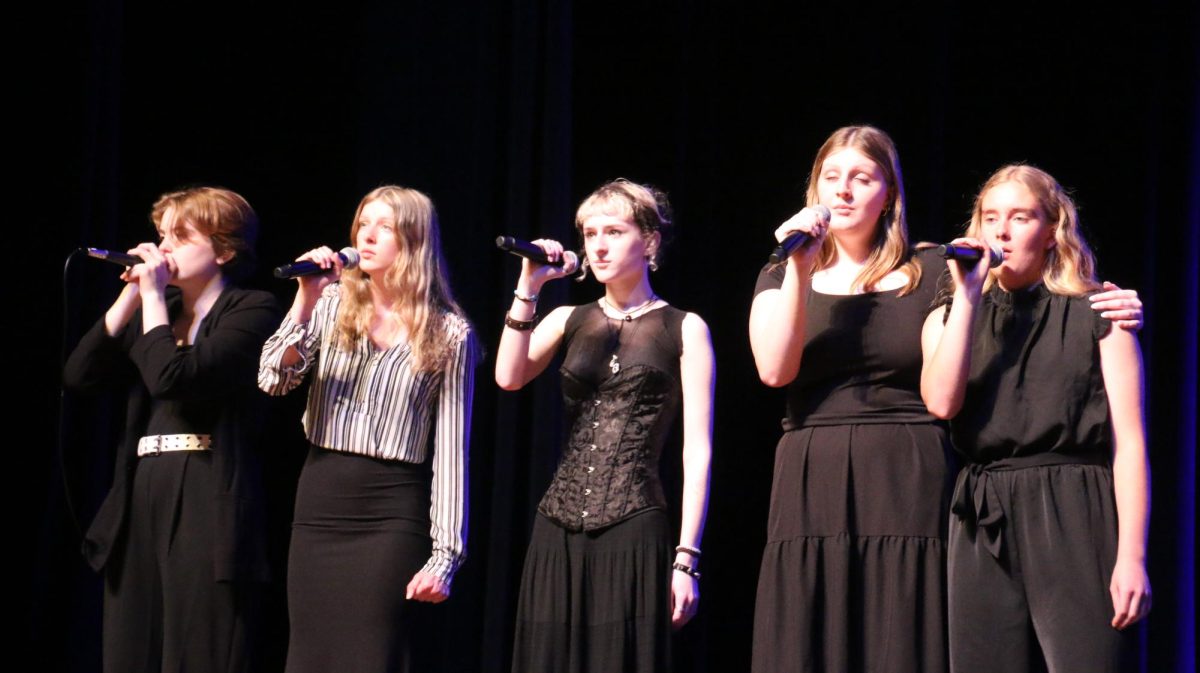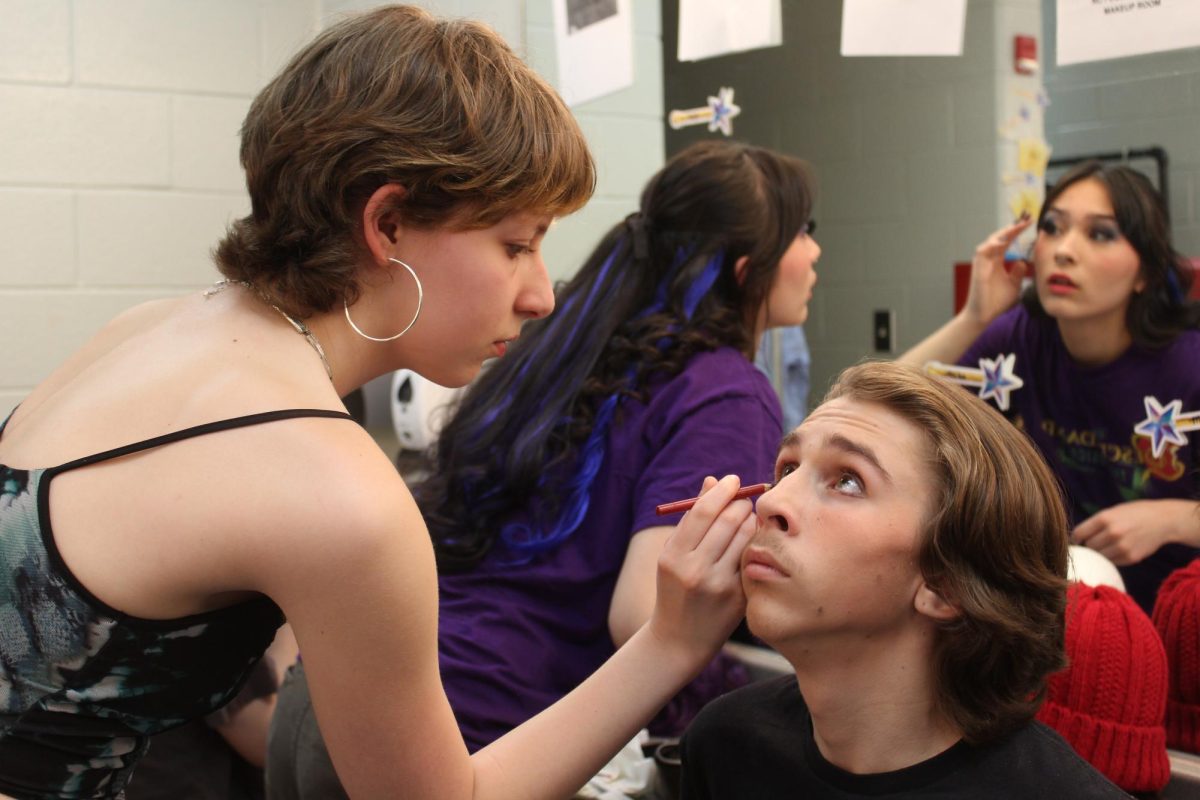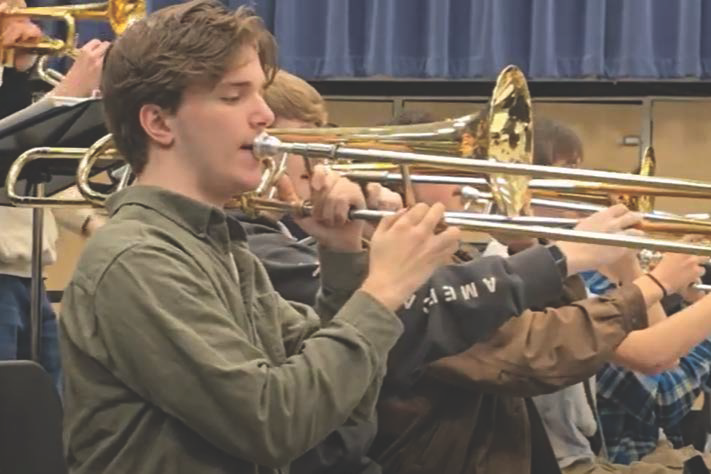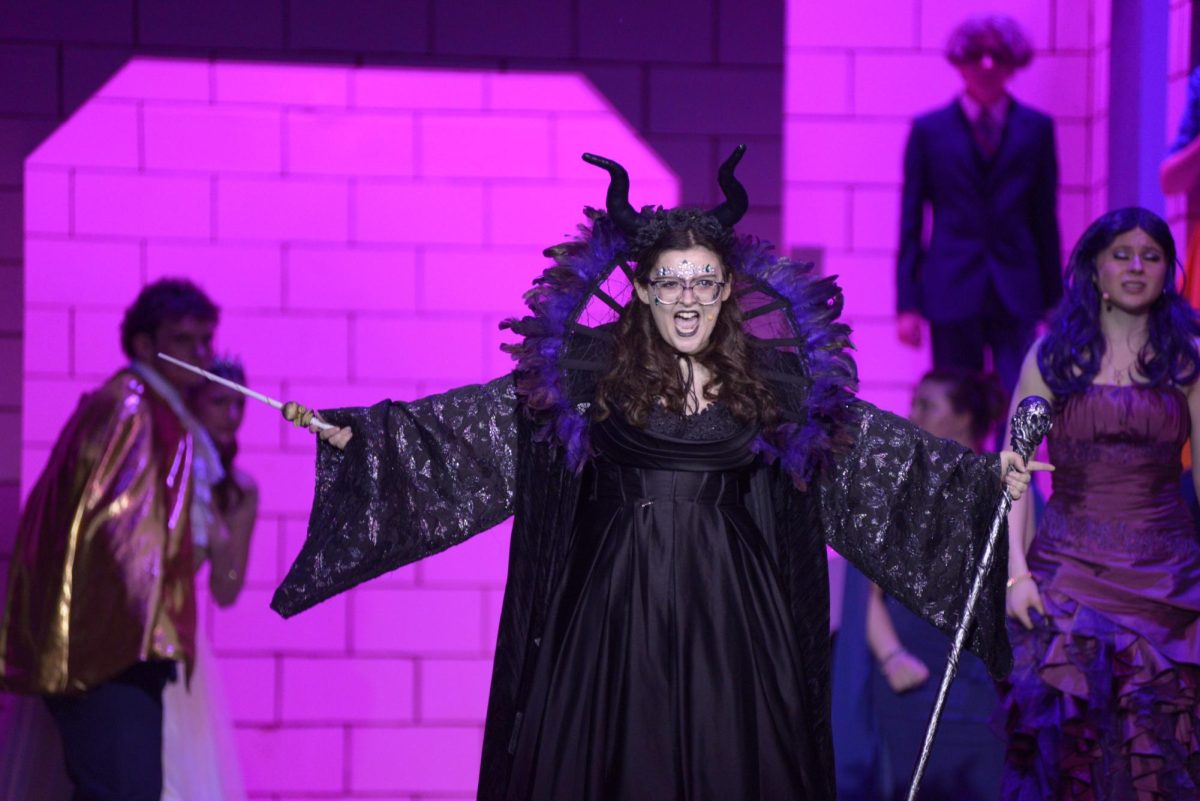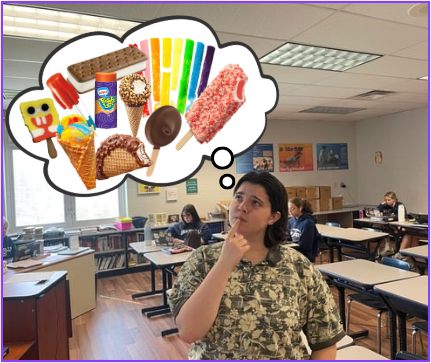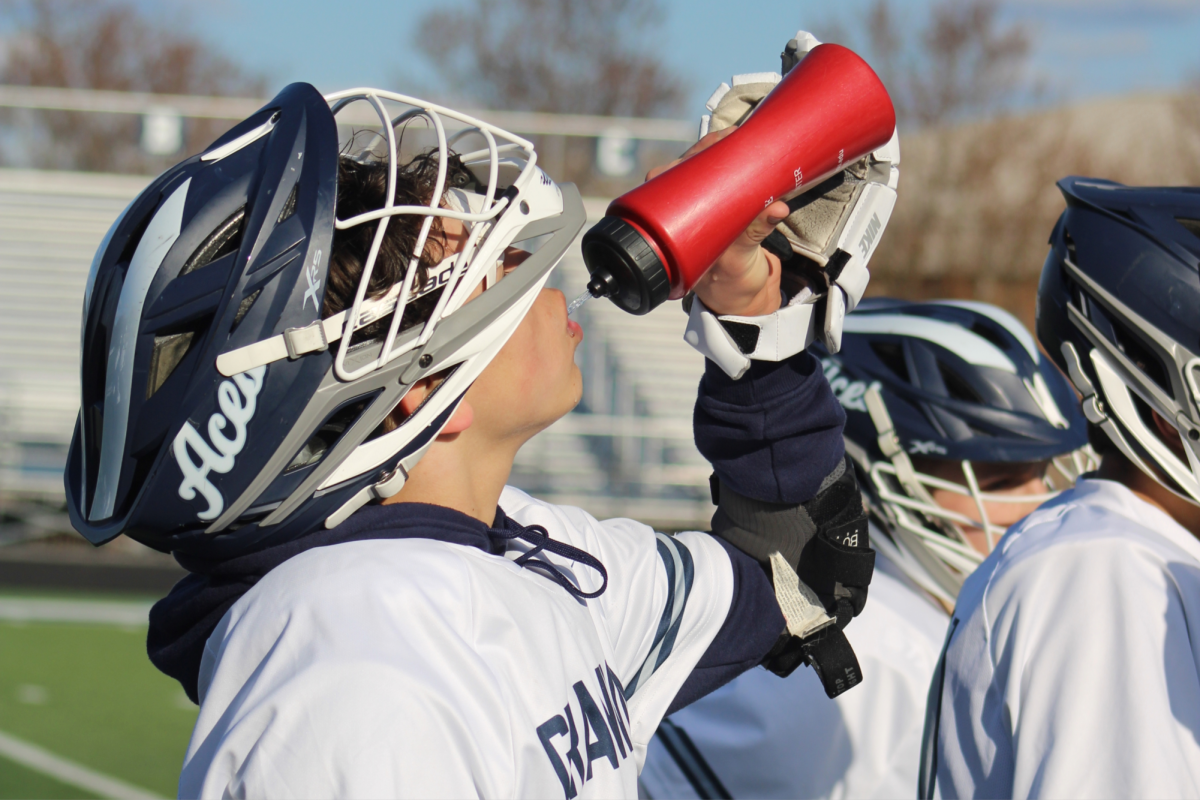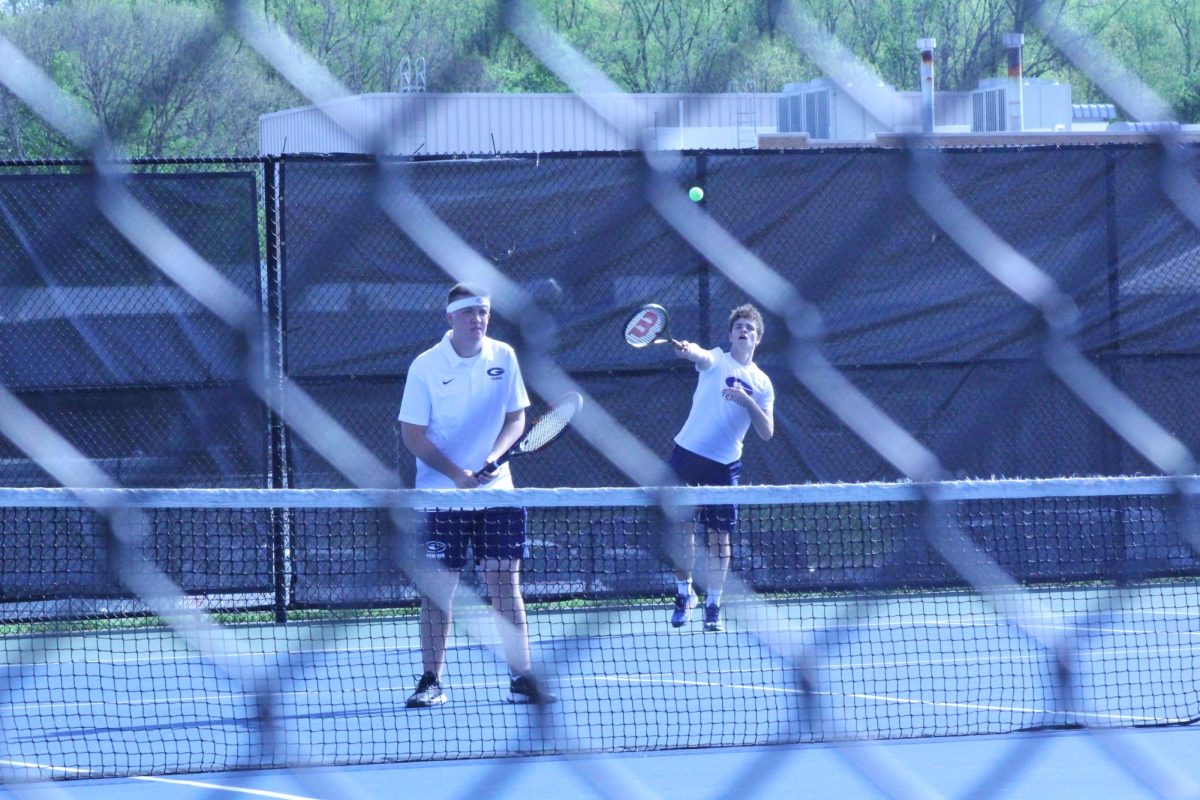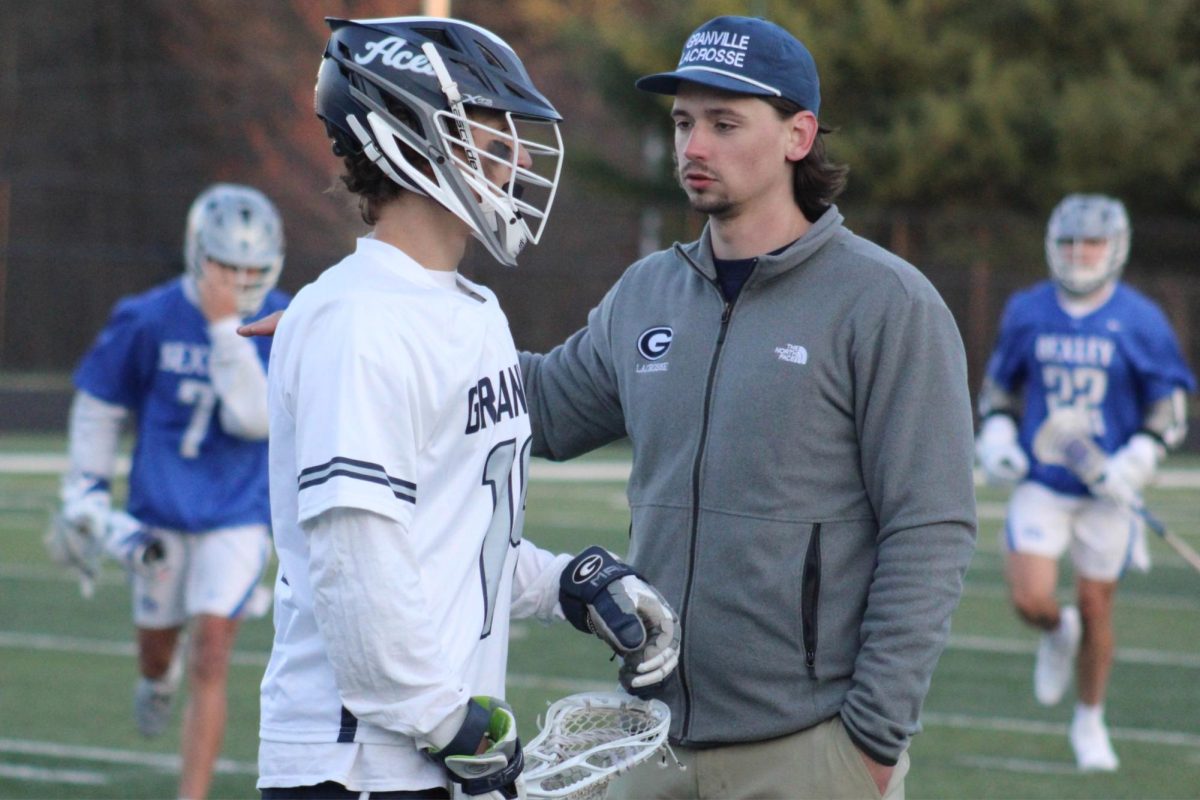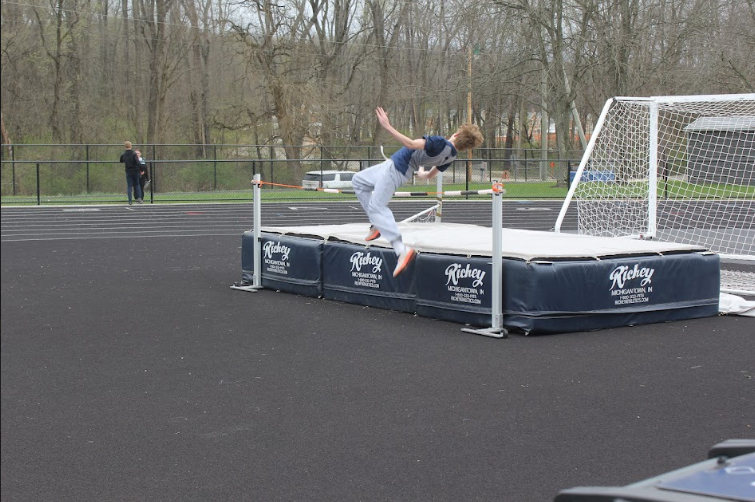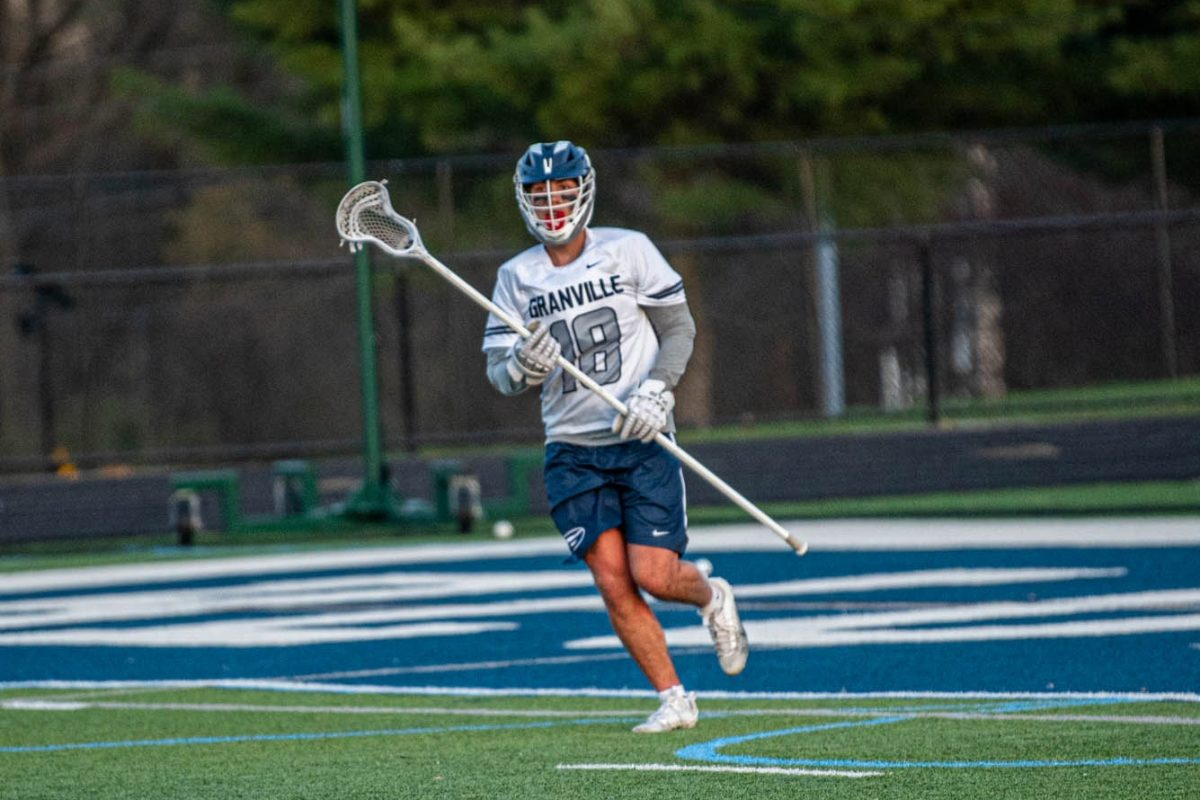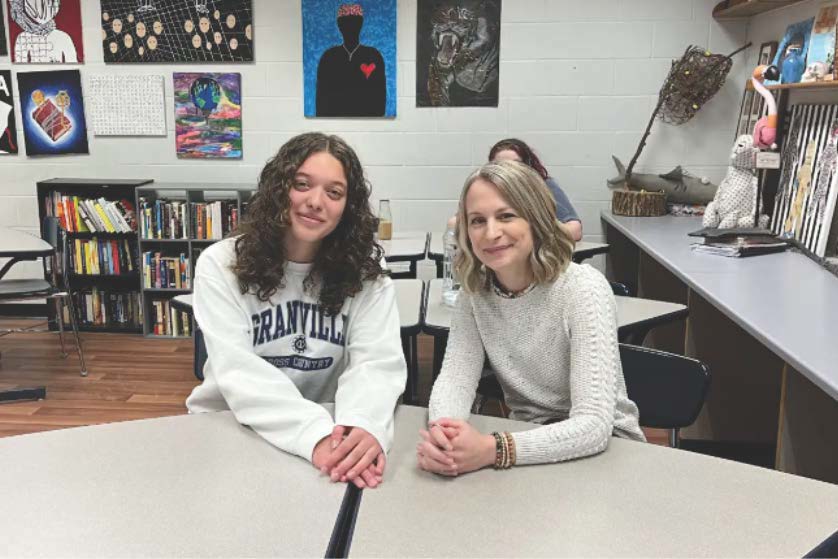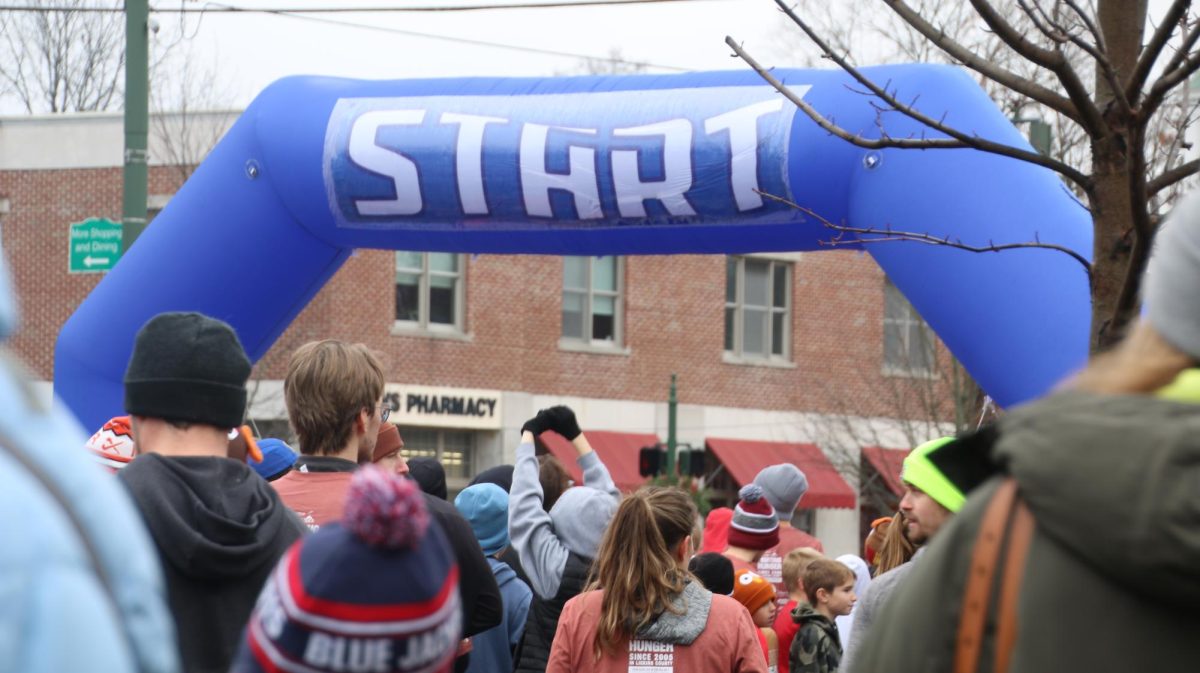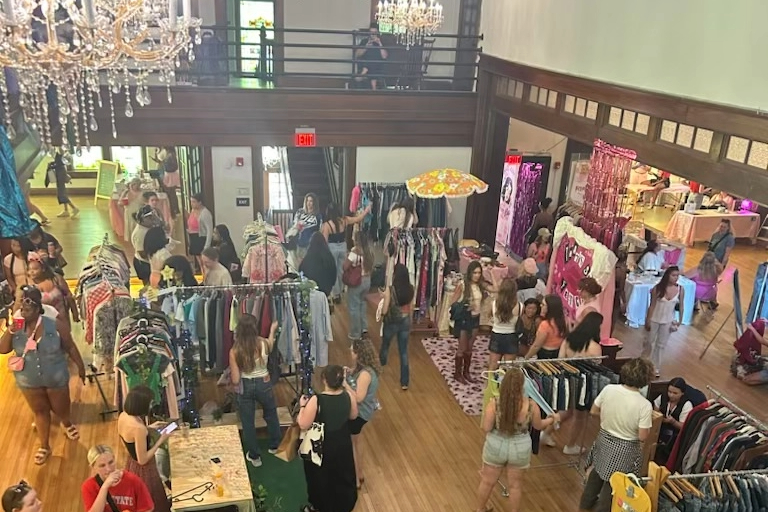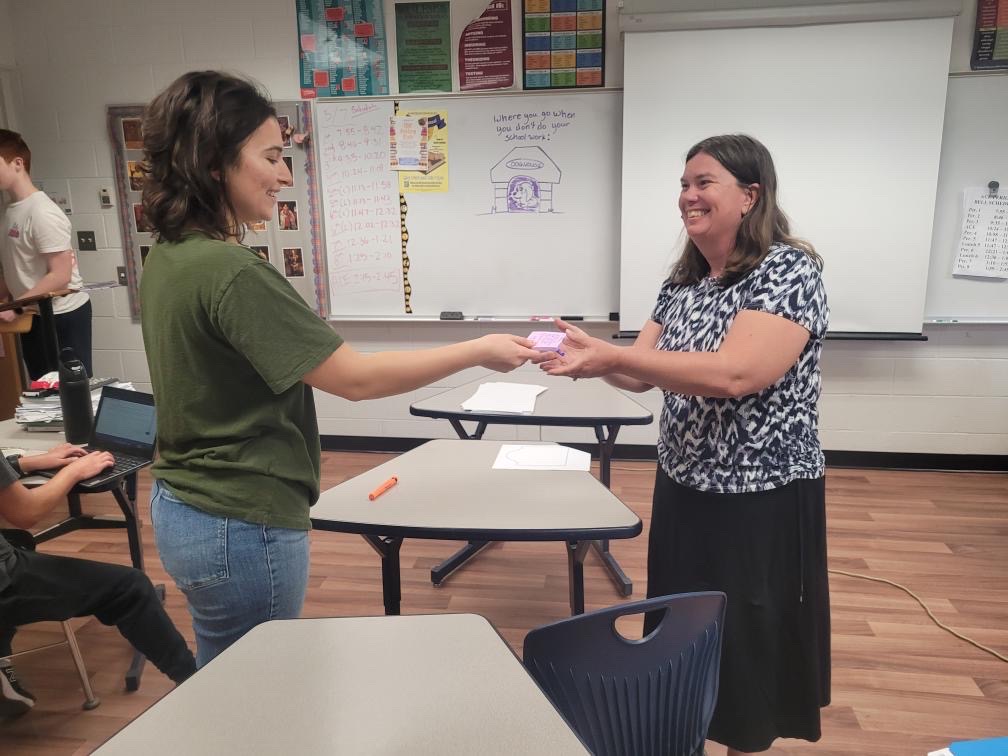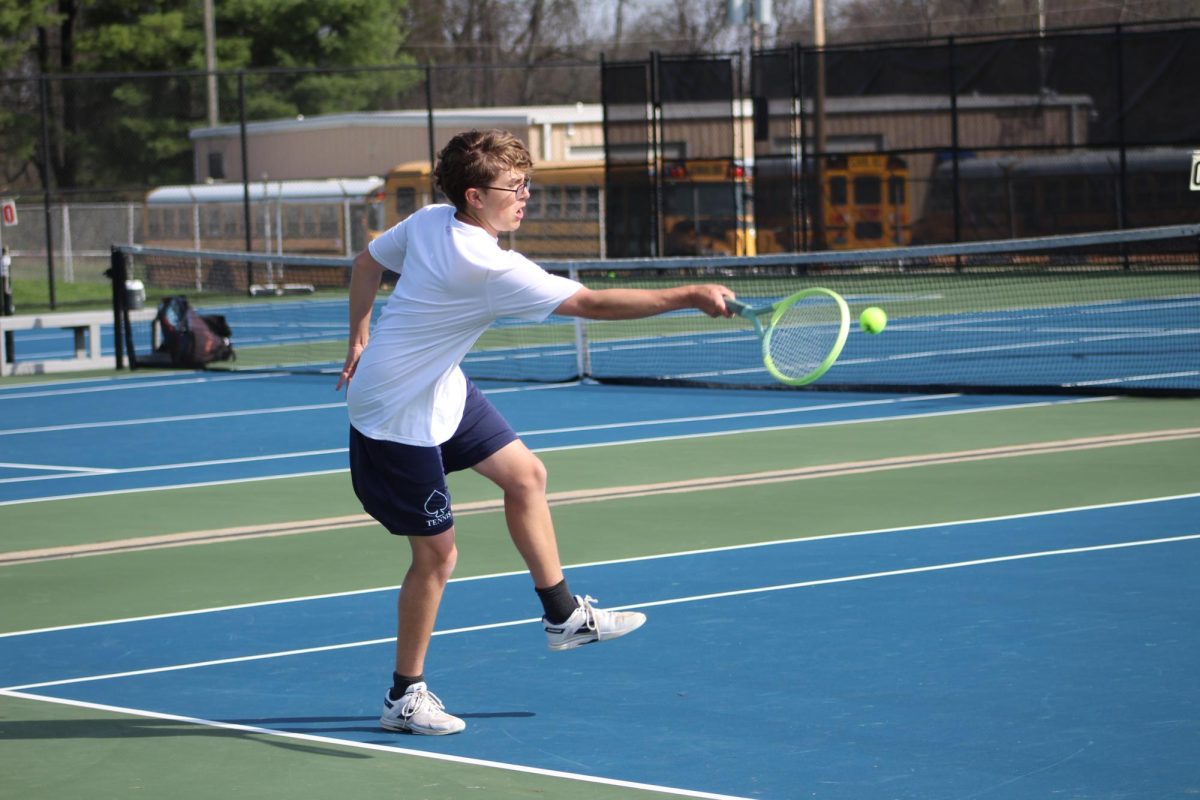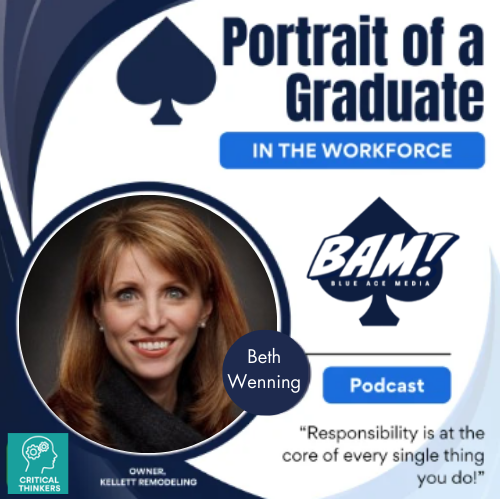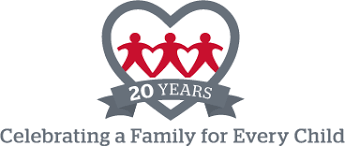Most people take for granted two very basic aspects of family life: knowing who their parents are and knowing basic facts about their ancestry and family health history.
However, for some students, who and where they came from are mysteries. A national study has determined that 2.5 percent of all kids under 18 years old were adopted, which means that approximately 20 kids who attend Granville are adoptees.
While they may not know their roots, many of them have fascinating stories to share.

JONATHAN LOSSING: INTERNATIONAL ADOPTION
Senior Jonathan Lossing may seem like any other student. However, he has a fascinating and unique story. He spent nearly half of his life in a Chinese orphanage before coming to Granville.
Lossing was born in China and lived in an orphanage until he was six years old. It was at the orphanage that he built relationships that have helped shape the person he is today. He has many fond memories of his first home and isn’t afraid to share his story.
One story is particularly vivid. Lossing was part of the orphanage’s dance group, which traveled throughout China to perform at various events. He doesn’t remember much about the travel, but he remembers the special treatment he received as one of the oldest kids in the orphanage.
“We do have a video of me like dancing in front of VIPs and government officials,” said Lossing, who was allowed to stay out later after dance performances than the other kids because of his age.
He was also able to help around the orphanage.
“I remember one time actually going to help and feed the babies in our orphanage, so that was really cool,” Lossing said.
The hardest part, he said, was actually leaving the orphanage when he was adopted by a U.S. family. That might sound like a blessing to most, but the orphanage was everything to him.
“It was more losing the people I knew at the orphanage,” Lossing said. “I remember being really sad because the people in the orphanage are the only people I really knew, and essentially my family.”
“I really do want to go back sometime.”
When he moved to the U.S., he didn’t speak English or know any of the social norms. This was especially terrifying, he said, because shortly after he came to America, he had to undergo his second open-heart surgery. (He had his first as an infant in China.)
He didn’t know how to communicate with doctors and nurses, and they couldn’t communicate with him. He couldn’t tell them how he was feeling or what he was feeling, so the recovery was a little nerve-wracking.
“By the grace of God, I’m here,” Lossing said.
All of these struggles he has faced have helped him in the long run, and he said he now stays calm during unexpected changes and knows how to adapt in the worst of circumstances.
“Now when something happens, I don’t break down or anything,” Lossing said.
Language is something he still has to work on daily, but one of his favorite hobbies has become a big help.
“There are always language barriers,” Lossing said. “I love to read, though, and I think that really helped me to learn the language faster.”
Lossing has loved his life in Granville and is very thankful to have been adopted. But he still has fond feelings for the orphanage and would like to go back to visit one day. He has kept in touch with one friend from the orphanage, who also was adopted and now lives in Florida. They talk regularly.
“I love telling people that I’ve known him longer than I’ve known my parents,” Lossing said.
Adoption has been a constant conversation in his life, both in China and now in Granville. He has two sisters who were adopted from a similar orphanage in China. One day he plans to return the favor.
Lossing is very interested in adopting one day and would love to give a child the chance that he was given, he said.
ABBY HOBEN: OPEN ADOPTION
Senior Abby Hoben is open about her life and her story of adoption. Her case is special because she has an open adoption, which is fairly rare. It means that she can have contact with her birth parents.
Her parents knew they were adopting her during her birth mom’s pregnancy, so Hoben never lived with her birth parents.
“I actually found this out recently, but I wasn’t like officially adopted until like a couple months after because it a long process”
Hoben said she has often wondered how things might be different if she weren’t adopted — how her life might be different, how she herself might be different. But it’s the only life she’s really known.
“I do question what it would be like if I wasn’t adopted,” Hoben said, “but I love my family, I love my parents.”
Hoben does not remember the moment when her parents told her she was adopted, but her brother Andy — who also was adopted and attends the high school — said they were told when they were about five years old.
“I was never shocked or surprised by it,” Abby Hoben said.
Abby Hoben was able to have contact with her birth mom and her father’s parents. Most of the contact they’ve had, however, has been through letters they’ve written to her. She enjoys reading the letters, she said.
She was actually able to meet her birth mom for the first time during sophomore year.
“Oh my god, it was so scary,” she said. “I was literally shaking and like freaking out.” However, unfortunately her birth mom passed away in November of her junior year. After only meeting her once she, she grieved the loss of that chapter coming to a close.
She says the hardest part for her was the fact that her brother’s birth parents are more involved than hers were, but Andy’s birth parents have done a great job of including her, she said. “Whenever they would get him a present they would always get me a present”
Another hardship she had to face is the fact that she has never met her dad and she has many half-siblings whom she hasn’t met.
In many ways, she is grateful for being adopted. She said it has made her more sociable coming from a big family of almost 50 who have always welcomed her and treated her as family.
Hoben was fortunate enough to avoid foster care because her parents adopted her so quickly. She hopes she can adopt one day to save other kids from foster care, too.
“I know some people that have gone through foster care and it’s kind of hard for them,” she said.
CZARI HORVATH: INTERNATIONAL ADOPTION

Sophomore Czari Horvath was adopted at only nine months old after being born in Kazakhstan, a central Asian country that is a former Soviet republic.
She said she is grateful that her parents took her out of the situation so she doesn’t have to live there.
“It was disgusting,” she said. A dual citizen of the U.S. and Kazakhstan, Horvath’s parents want to take her back for a visit sometime.
“I’ve heard stories [about my adoption], but I don’t remember it,” she said.
The Horvaths had a hearing recently to confirm her adoption. The hearing went well and she was able to stay with her family.
She has always known she was adopted simply because she looks different than her parents, but that has not kept them from feeling like family. Czari says she often forgets that her parents are not her biological parents and has to remind herself that she is adopted.
Like any kid, she wonders if her mom was the same as her as a young child but Czari invisions her adoptive mom and then realizes that they wouldn’t be the same. “I always forget that I was adopted.”
She has never felt any less a part of her family, but she has struggled with looking different than her family and like other students at school.
She remembers she was very insecure about her hair growing up because a lot of people in her circle have straight hair. She tried to hide her natural hair but now she embraces it. She also remembers being ashamed of her skin color. “I would purposely get out of the sun so I wouldn’t get tan,” she said.
It has always been hard for her to look into her birth family history because she simply doesn’t know where to begin. “My birth parents didn’t leave any information at all so like I don’t even know what my last name was,” she said. This makes it nearly impossible to look into her birth family or find any of her biological relatives.
“My parents got me a DNA testing kit, but I haven’t done it yet because I can’t spit,” she said laughing.
She says for her the worst part of it is all the wondering. “I just want to know why they gave me up for adoption and like I want to know if I’m the same as my parents,” she said.
Lastly she said that although it would be rewarding to adopt, she doesn’t think that it will be in her future. “I want to see what my kids would look like because I have never had anything biologically to me.”
“It shows me how people can love cause I wasn’t like their original kid and then they have like this amount of love for me”

ELIZA KURTZ: INTERNATIONAL ADOPTION
Freshman, Eliza Kurtz was adopted at only one-year-old from China and after a fairly easy adoption process she moved to the States. She does not remember the process of her own adoption, however, a few years after she was adopted, her family went back to China to adopt her sister and she remembers the trip.
“We went back to get my sister when I was like four and I remember that,” Kurtz said.
Although she was so young and does not remember all of the details, it has still affected her throughout her life. Since they look different, she has always gotten weird and judgmental looks when she has gone out of town with family.
She says finding out she was adopted was no surprise at all. “My parents are white, I’m Asian,” she said, smiling.
Kurtz is, in many ways, grateful for being adopted because of the opportunities it has provided for her, such as tennis, track, piano and violin. This might not have been possible if she still lived in China.
She has grown up in a loving home and with a family, but there are questions left unanswered.
The biggest question is not knowing stuff about her biological family, she said. But this has taught her empathy, and “… being nicer to other people because you don’t know what their going through.”
A big question in her life is her birth family’s health history. She has looked into her DNA and was pleasantly surprised by what she found– not that she’s 99.02 percent Chinese, but that she’s .08 percent Vietnamese.
Being adopted has given her eyes to see that everyone is going through something, and it’s taught her the importance of being nice to others.
When asked if she may want to adopt in her future she laughed and said,”Yes, so that I don’t have to deal with childbirth.”
She is grateful for her family. “My parents are pretty cool.”

